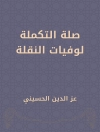In ‘Strong Souls’ by Charles Beard, the author delves into the intricacies of human resilience and fortitude in the face of adversity. This literary masterpiece showcases Beard’s unique storytelling style, characterized by vivid imagery and profound introspection. Set against the backdrop of a turbulent historical period, the narrative follows a diverse cast of characters as they navigate the challenges of life with unwavering determination. Beard’s ability to capture the essence of human strength through his words makes ‘Strong Souls’ a compelling read, resonating with readers on a deep emotional level.
عن المؤلف
Charles Austin Beard was an American historian, well renowned for his innovative works in the field of American history and political science. Born on November 27, 1874, in Knightstown, Indiana, he cultivated a robust academic foundation, culminating in a profound academic career. Beard’s historiographical methods revolutionized the interpretation of American history, particularly with his sociological perspective of economic interests as driving historical events. His seminal work, ‘An Economic Interpretation of the Constitution of the United States’ (1913), argued the framing of the Constitution was fundamentally motivated by the personal financial interests of its drafters, affirming a decisive pivot from purely ideological analysis to the dynamics of economic class structures. In ‘Strong Souls’, a title undoubtedly reflective of Beard’s intellectual rigor, we encounter a narrative interlacing the individual’s robust moral and intellectual convictions in the context of historical currents. Beard’s literary style is characterized by precise language and exhaustive research, offering an empirical lens through which to consider the powerful forces shaping history. Though his economic determinism has faced scrutiny, Beard’s unyielding commitment to scholarly principles remains a touchstone for students of historiography. He passed away on September 1, 1948, but his contributions to American historiography continue to inspire academic discussions and remain relevant in contemporary historical analysis.












